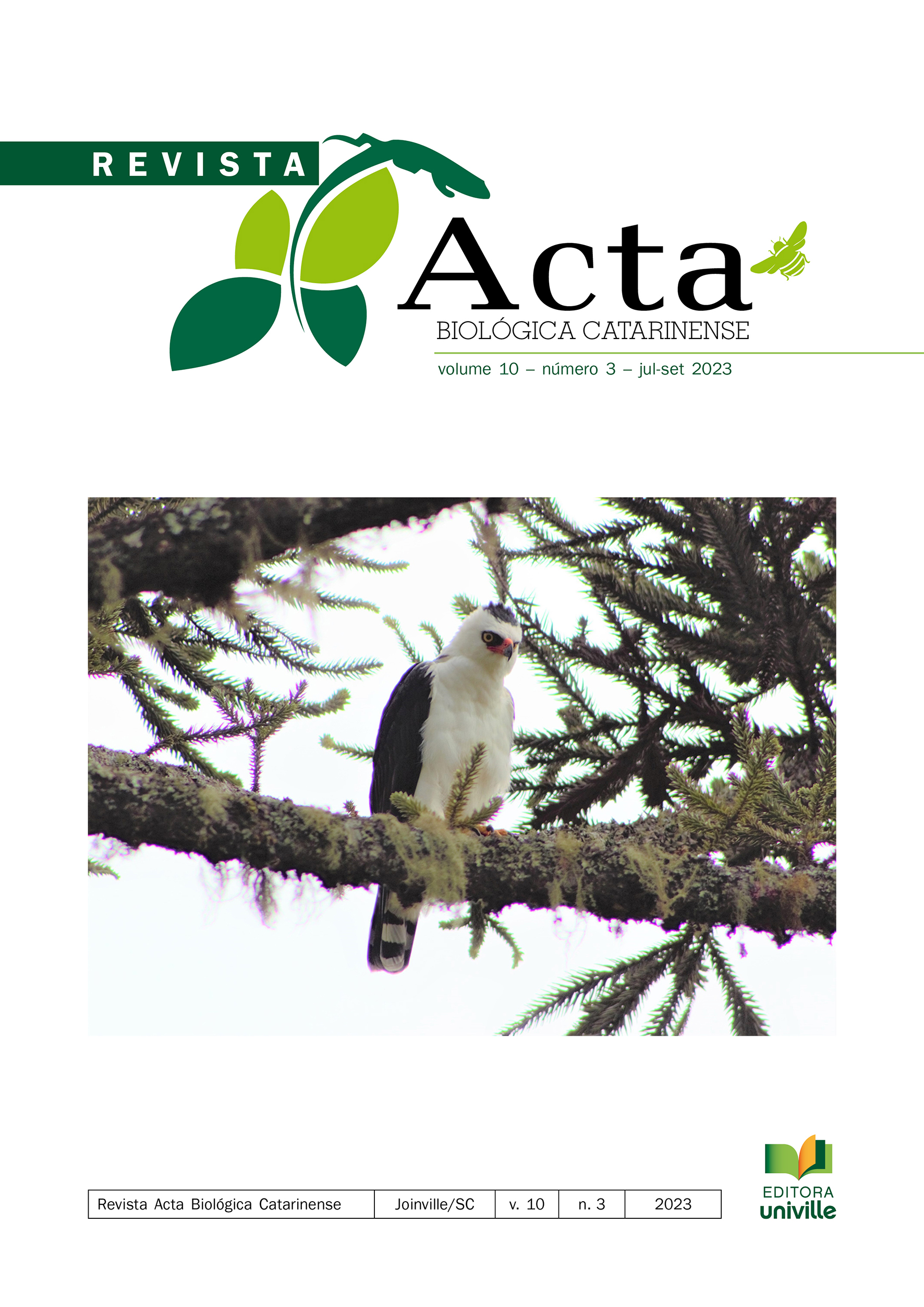Susceptibility of cassava accessions and microbial activity of plant extracts in the in vitro control of Xanthomonas axonopodis pv. manihotis
DOI:
https://doi.org/10.21726/abc.v10i3.2159Resumo
In Brazil, the most important disease in cassava is bacteriosis, caused by Xanthomonas axonopodis pv. manihotis. The variety of substances present in plants has provided an increase in research using plant extracts for in vitro control of phytopathogens. This work aimed to evaluate different extracts for the control of Xanthomonas axonopodis pv. manihotis as well as to evaluate which accessions are susceptible to this bacteriosis. The work was divided into two experiments, one in a greenhouse and the other in the laboratory, both in a completely randomized design with five replications. The propolis, oregano and star anise extracts tested in this research proved to be a control option. Understanding the antimicrobial effect of compounds present in plant extracts may constitute yet another way of alternatively controlling pathogens in cultivated plants. Regarding the cassava accessions, the use of the Fepagro RS14 cultivar and the FV10, FV13 and SJ06 accessions is recommended, as these proved to be resistant to bacteriosis.


